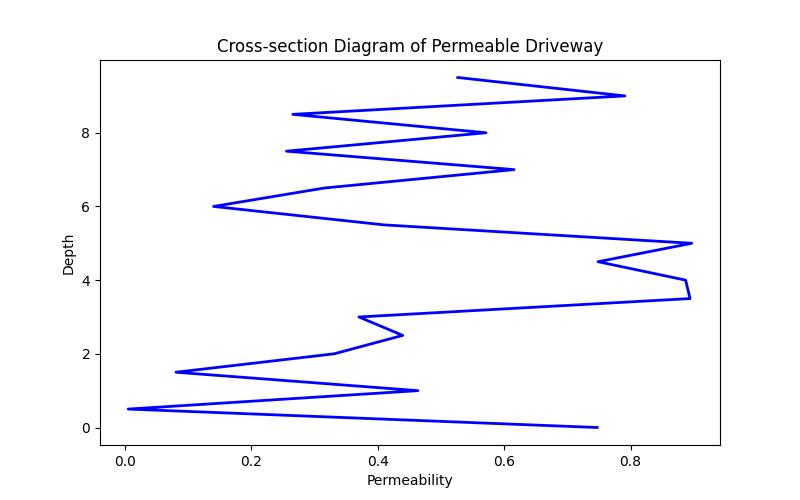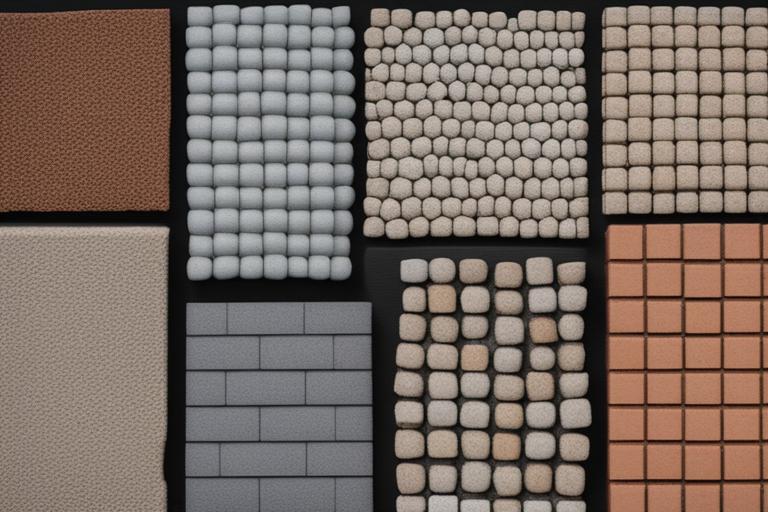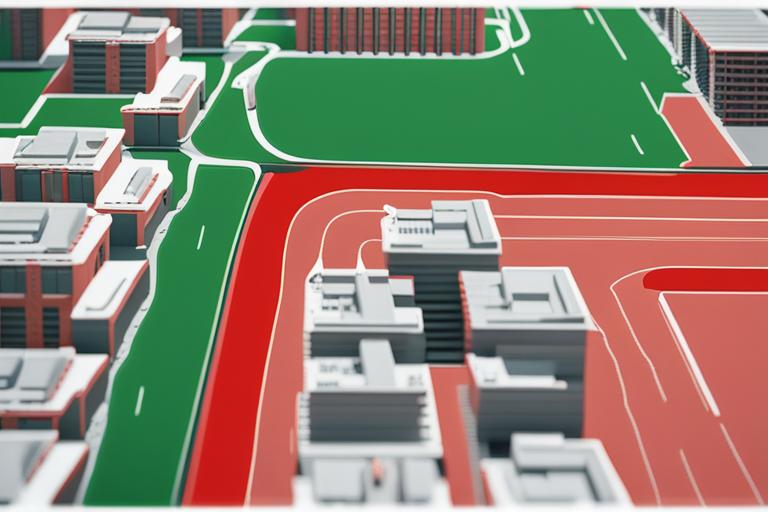Are you looking for an eco-friendly solution to reduce pollution? Permeable driveways might be the answer. These driveways are made from materials that allow water and air to pass through, reducing the amount of water runoff and pollution that enters our waterways. In this article, we will explore the benefits of permeable driveways and how they can help to reduce pollution.
Permeable Driveways: The Eco-Friendly Solution for Pollution Reduction
Learn about permeable driveways and how they can reduce pollution from driveways with this article.
– Discover what permeable driveways are and how they work to reduce pollution.
– Understand the benefits of permeable driveways, such as reducing water runoff and filtering pollutants.
– Find out about the cost and maintenance of permeable driveways, as well as the environmental impact and regulations associated with them.

What are Permeable Driveways?
Permeable driveways are a sustainable alternative to traditional impervious driveways. They are made from materials that allow rainwater to filter through the driveway instead of running off into the street. Traditional impervious driveways do not allow water to pass through them, leading to water runoff that collects pollutants such as oil, gas, and heavy metals before entering our waterways.
Benefits of Permeable Driveways
Permeable driveways offer numerous benefits for reducing pollution. They help to reduce the amount of water runoff that enters our waterways and filter pollutants from rainwater, such as oil, gas, and heavy metals. This process helps to prevent these pollutants from harming aquatic life.
Permeable driveways also help to mitigate the impact of urbanization on the environment. They reduce the urban heat island effect by allowing rainwater to filter into the ground and cool the surrounding area. Permeable driveways also help to preserve natural water systems by reducing the amount of impervious surfaces in urban areas.
Research has shown that permeable driveways can be effective in reducing pollution. For example, a study by the University of California, Davis found that permeable pavements reduced total suspended solids by 85% and heavy metals by 60-80% compared to impervious surfaces.

Types of Permeable Driveways
Permeable driveways come in different types, each with its own advantages and disadvantages. Permeable asphalt is durable and can last up to 20 years. Permeable concrete is highly permeable and can last up to 30 years. Gravel driveways are easy to install and maintain.
When selecting a permeable driveway, consider the type of material, durability, and cost. Permeable driveways can be more expensive to install than traditional impervious driveways, but they offer long-term cost savings by reducing maintenance costs and improving property value.
Cost and Maintenance of Permeable Driveways
| Environmental Benefits of Permeable Driveways | Description |
|---|---|
| Reduced water runoff | Permeable driveways allow water to filter through the material, reducing the amount of water runoff that enters our waterways. |
| Filter pollutants | Rainwater can collect pollutants such as oil, gas, and heavy metals on traditional impervious driveways. Permeable driveways filter these pollutants from rainwater, preventing harm to aquatic life. |
| Mitigate the impact of urbanization | Permeable driveways reduce the urban heat island effect by allowing rainwater to filter into the ground and cool the surrounding area. They also help to preserve natural water systems by reducing the amount of impervious surfaces in urban areas. |
The cost of installing a permeable driveway can vary depending on the material and the size of the driveway. Permeable driveways can cost anywhere from $8-$20 per square foot, compared to $3-$5 per square foot for traditional impervious driveways. However, there are ways to save money on the installation of permeable driveways, such as choosing a less expensive material or design.
Permeable driveways require regular inspections and cleaning to ensure they continue to function efficiently. This includes removing debris and checking for any damage to the driveway. However, permeable driveways require less maintenance than traditional impervious driveways because they do not require sealing or resurfacing.

Environmental Impact and Regulations
Traditional impervious driveways have a significant environmental impact. They contribute to water scarcity by preventing rainwater from filtering into the ground and replenishing natural water systems. Impervious surfaces also contribute to the urban heat island effect by absorbing and radiating heat. Permeable driveways can help to mitigate these effects by allowing rainwater to filter into the ground and cool the surrounding area.
There are regulations and incentives for permeable driveway installations at the local and national levels. Many cities and towns offer incentives for installing permeable driveways. These programs can help to offset the cost of installation and encourage homeowners and commercial property owners to choose permeable driveways.
Case Studies of Successful Permeable Driveway Installations
To demonstrate the effectiveness of permeable driveways, let’s look at some case studies of successful installations:
- In Seattle, the city has implemented a program that offers rebates to homeowners who install permeable driveways. The program has been successful in reducing the amount of polluted runoff that enters the city’s waterways.
- The University of North Carolina at Chapel Hill installed a permeable parking lot that reduced the amount of runoff by 99% compared to the previous impervious parking lot.
- The city of Chicago installed permeable alleys that reduced the amount of runoff by 80-90%.
These case studies demonstrate the effectiveness of permeable driveways in reducing pollution and improving water quality.
Case Study: Permeable Driveway Installation in a Residential Area
When John and his family moved into their new home, they quickly realized that the driveway was causing water runoff and pollution in their neighborhood. After doing some research, John learned about permeable driveways and decided to install one in his own home.
John chose a permeable asphalt driveway, which was more expensive than traditional asphalt but was worth the investment for its environmental benefits. The installation process was quick and easy, and John was pleased with the result. Not only did the driveway reduce water runoff and pollution, but it also added curb appeal to his property.
A few months after installation, John noticed that his neighbors were curious about his new driveway and asked him about it. John was happy to explain the benefits of permeable driveways and how they could reduce pollution in their neighborhood. Inspired by John’s example, several of his neighbors also installed permeable driveways in their own homes.
Today, John and his neighbors have made a positive impact on their community by reducing pollution and preserving natural water systems. John is proud to have been the catalyst for change in his community and encourages others to consider permeable driveways as a solution for pollution reduction.

Conclusion
Permeable driveways are a sustainable and eco-friendly solution for reducing pollution. They help to reduce water runoff, filter pollutants, and mitigate the impact of urbanization on the environment. While permeable driveways can be more expensive to install than traditional impervious driveways, they offer long-term cost savings and improve property value. By choosing permeable driveways, homeowners and commercial property owners can make a positive impact on the environment and create a more sustainable future.
Q & A
What are permeable driveways?
Driveways that allow water to pass through and infiltrate the ground.
Who can benefit from permeable driveways?
Homeowners looking to reduce pollution and manage stormwater.
How do permeable driveways reduce pollution?
They filter pollutants and prevent runoff from entering waterways.
What is the cost of installing a permeable driveway?
It can range from $8 to $20 per square foot, but it depends on the material used.
How long does a permeable driveway last?
With proper maintenance, they can last up to 30 years.
What if I live in a cold climate, will a permeable driveway work?
Yes, as long as the proper material and installation techniques are used to prevent freezing and cracking.
Follow us!!